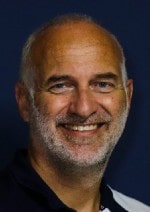
Head of the department of Physical Medicine and Rehabilitation. Member of the Medical Committee of the French National Paralympic Committee. Raymond Poincaré Hospital, APHP, Garches, France. Versailles Saint Quentin-en-Yvelines University (Paris-Saclay University), France.
François Genêt is Professor and Executive head of the department of Physical Medicine and Rehabilitation in the tertiary care university hospital Raymond Poincaré in Garches (Assistance Publique – Hôpitaux de Paris, France). He has developed the first medico-surgical neuro-orthopedic department dedicated to people with neuromotor disabilities and the parasport health center. He is the head of the department for research on neuro-orthopedic disorders, “End:icap” U1179 INSERM, at the Versailles Saint Quentin-en-Yvelines University (Paris-Saclay University). He is also the President-elect of the French Learned Society of Physical Medicine and Rehabilitation (SOFMER).
Professor Genêt has developed his involvement in parasports and sports since five years becoming member of the Medical Committee of the French National Paralympic Committee (CPSF), and member of the Medical Committee of the International Committee of the Mediterranean Games (ICMG). He was in charge of the French NPC medical team for the Tokyo 2020 Paralympic Games. He is also piloting a project to create a sport-health university institute for people with disabilities (ISPC, www.ispc-synergies.com), based on 3 axes: health, research and training, legacy of the Paris 2024 Paralympic Games. The aim is to promote the “world of health” in order to develop the access and the follow-up to physical activity and sports for all people with disabilities.
Professor Genêt’s clinical and research activities focus on neuro-orthopaedic disorders including motor disorders. In 2009, he created the medico-surgical translational research group in neuro-orthopaedics. The group explores with preclinical, clinical and epidemiological approaches the outcomes of functional surgery, the impact of neurological lesions on bone and joint structure, and the impact of muscular disorders on limb deformities.

